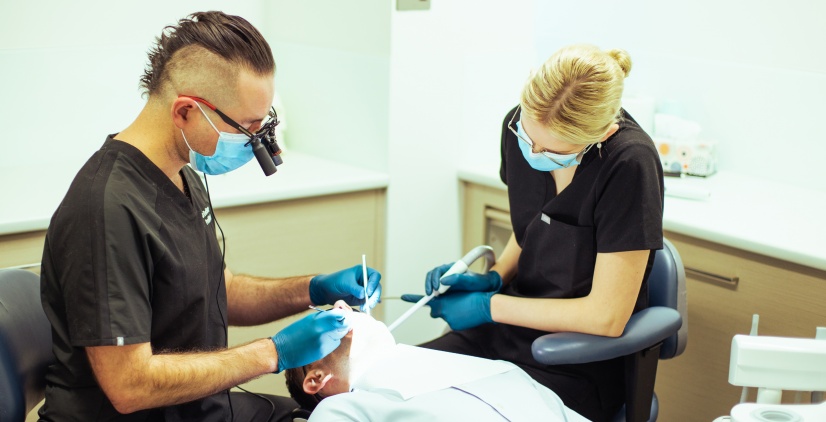Tooth decay is a progressive process where acid forming bacteria uses the sugars in the foods and drinks you eat to weaken the surface of your teeth. The acid causes a small hole in the tooth, which is called a cavity. Bacteria can enter the tooth through the cavity, creating an infection which will affect your oral and overall health and wellbeing. Cavities are highly influenced by a number of factors, including what you eat or drink, how you look after your oral hygiene, the presence of fluoride in the toothpaste and mouthwash you use, and genetics. The most common way to stop tooth decay reaching the soft dentine layer of your teeth is for a dentist to drill out the decay and replace the missing tooth with a tooth coloured white dental filling. Learning how to prevent cavities can help you ensure you don’t need to have a filling.
It is essential to brush your teeth properly and consistently with a soft bristled toothbrush before breakfast and after dinner. Opt for a toothpaste that contains fluoride. Brush for at least two minutes by using short, gentle strokes along the inner and outer of the teeth, the gumline and the chewing surfaces. If you eat a sugary drink or food, you should wait at least 30 minutes before brushing your teeth so that you don’t remove the enamel off your teeth when you brush.
Flossing each day will help remove food debris stuck between your teeth to prevent bacteria growth. Flossing only takes a few minutes and can be done whilst watching television or reading the paper, and should ideally be done after brushing your teeth.
Good nutrition plays an important role in good dental and overall health. Eating sugary or starchy foods, such as soft drinks, juices or sweets, can leave cavity causing acids on your teeth. Snacking regularly can increase the amount of time that the acids sit on your teeth, which can then increase your chance of getting a cavity. Stick to a healthy diet filled with fresh fruit and veggies and water to improve your oral health.
Making sure that you drink water in between each meal is another great way to support mouth health and wellbeing. Drinking sugary drinks, including fruit juice can eat away at the enamel on your teeth. Water helps to wash away any food or residue left after meals, and also had fluoride which helps teeth fight against tooth decay.
Crowded teeth are more difficult to clean, therefore making them more susceptible to decay. If this is the case with your child, it might be worthwhile looking into orthodontic treatment for them from a younger age. Treatments such as braces or Invisalign clear aligners can help not only for the look, but to also help maintain oral hygiene.
Many cavities can only be seen by a dentist or via a dental x-ray. Visiting your dentist for a regular six-monthly oral exam, professional teeth cleaning and other necessary dental treatments is key to preventing cavities and detecting them early.
